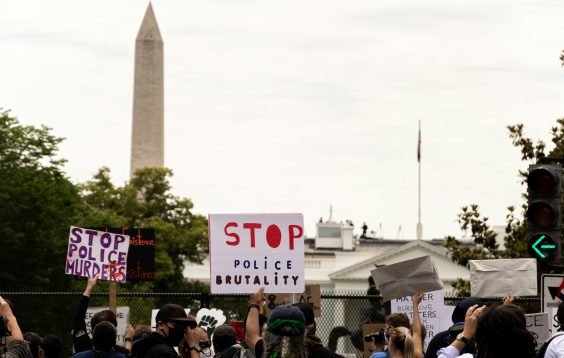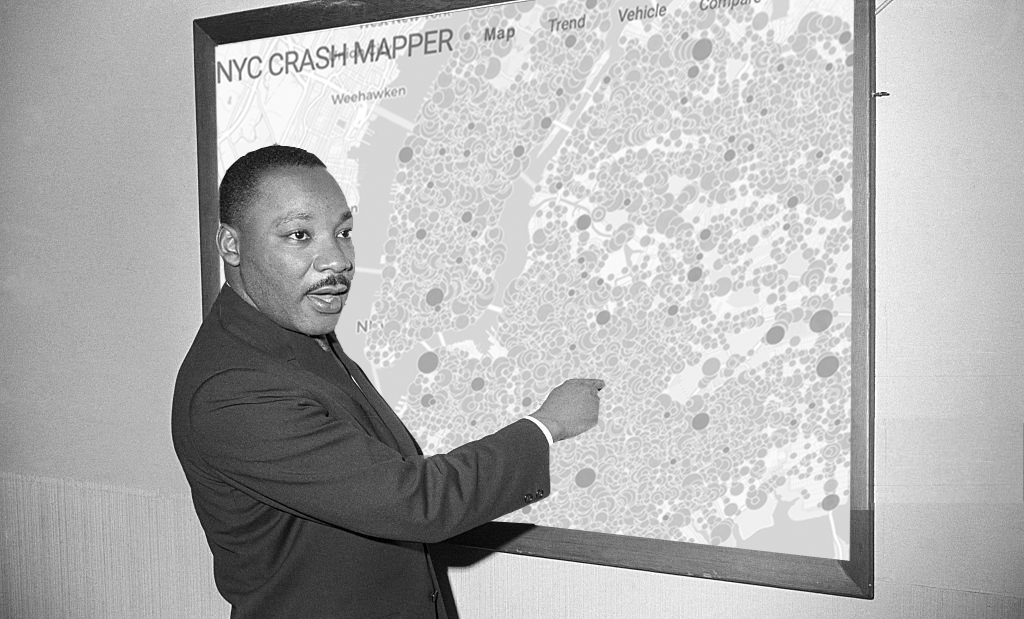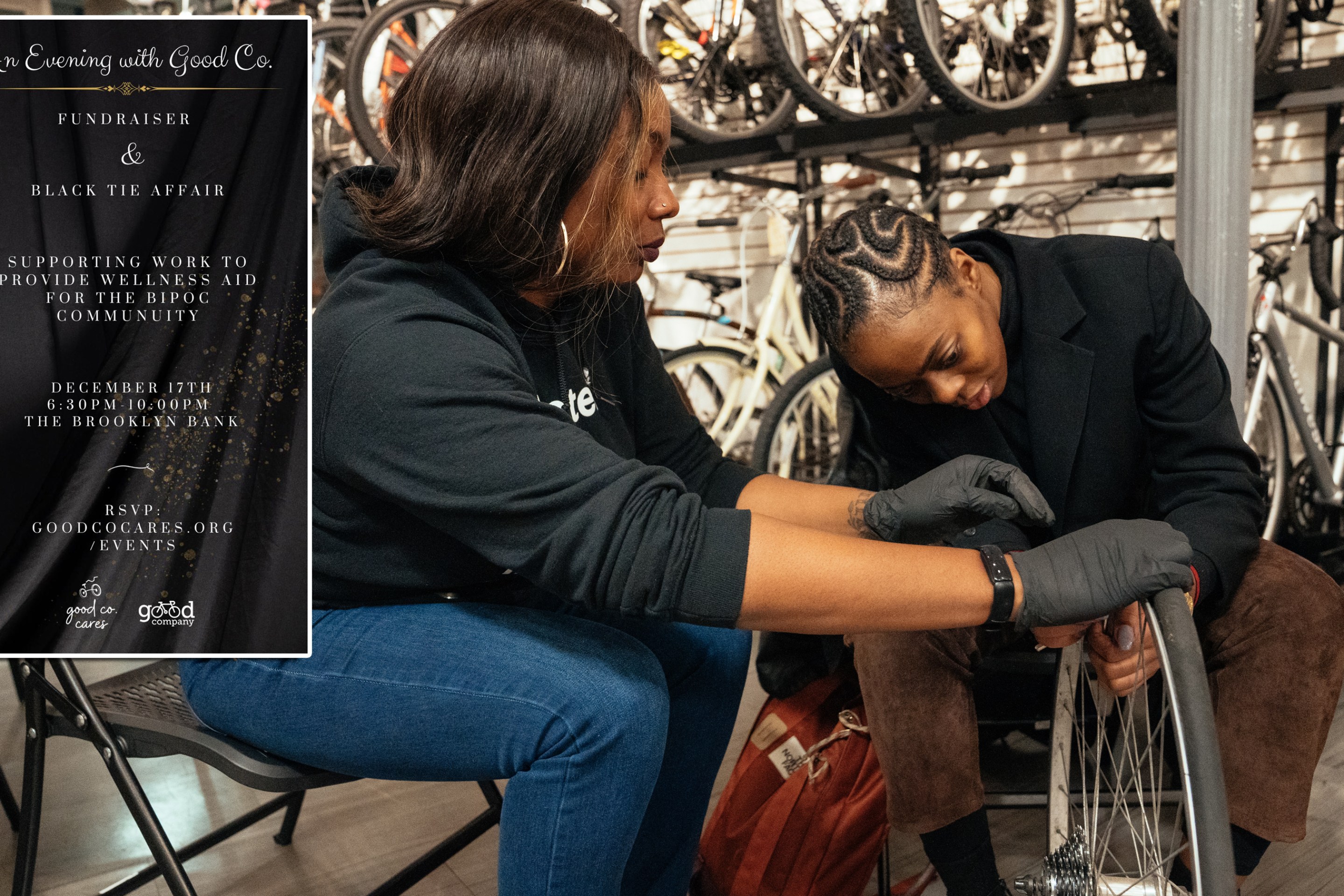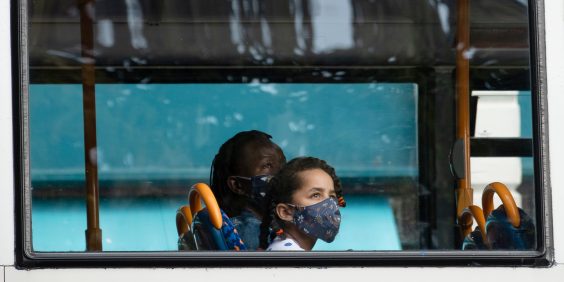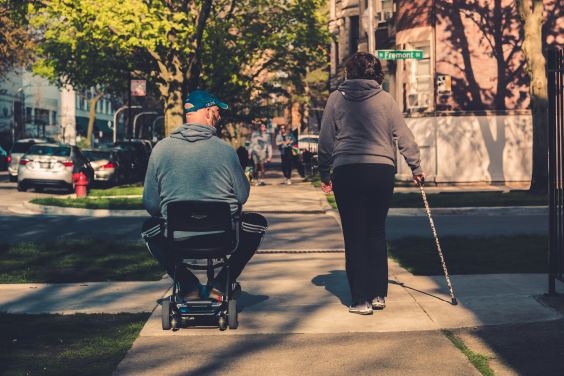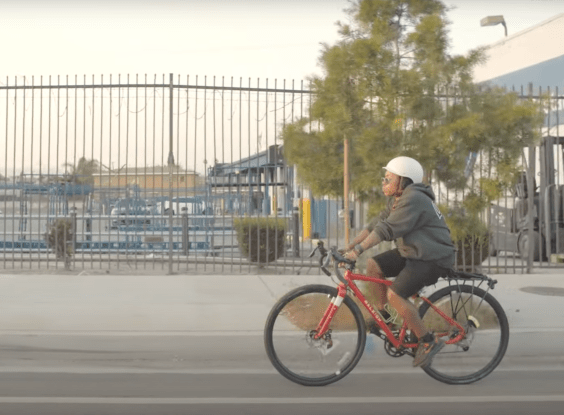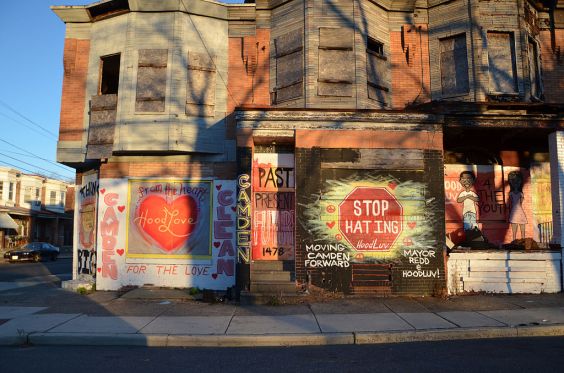Mobility Justice
Is ‘Walk Score’ Really Just a ‘White Score’?
A provocative new paper argues that one of America's most popular real estate tools is driving investment to predominantly white urban neighborhoods, without meaningfully expanding walkability for anyone else.
Sustainable Transportation Research Is Snagged In Trump’s Anti-‘DEI’ Dragnet
President Trump's war on efforts to boost diversity, equity and inclusion is taking important mobility justice research down with it.
How Feds Can Help End Racially Biased Policing on the Roads
Policing is often seen as a state or local issue — but US DOT could play a huge role in encouraging better practices, a new report argues.
Monday’s Headlines: MLK in Current Events Edition
Politicians will spend today at various events honoring Martin Luther King Jr. But none will honor him as we think is most fitting ... with these MLK-themed headlines.
Wednesday’s Headlines: Good Company for a Good Cause Edition
We're not the only non-profit that needs help this holiday season. Plus other news.
What’s Behind the Increasing Assaults of NYC Transit Workers?
A new study says the violence isn't about the transit, but a reflection of our society.
TransitCenter Lists the Equity-Focused Projects We Need Now
Advocates are handing transportation leaders a list of equity-focused transit projects they should use federal money to build instead of freeway expansions.
American Streets May Soon Get Their First Accessible Design Standards from the Feds
The ADA has been the law for 33 years. Why has it taken this long to write strong guidelines to implement it on U.S. streets?
How Four Black Advocates Are Charting a Path to a More Inclusive Bike Community
Streetsblog talked to four Black bike advocates in Atlanta, Los Angeles, and the Twin Cities to get a snapshot of how they're fighting to expand the vision for what a Black cycling community could look like.
This Year’s RAISE Grants Will Help Disadvantaged Communities
“This is a record amount,” said a U.S. DOT official, noting that last year, just 50 percent of RAISE funds went to underserved groups. This year, it's 70 percent.


